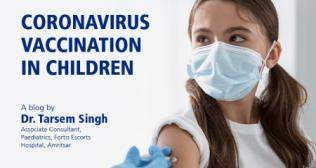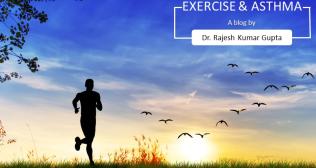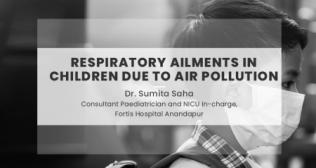5 questions on the COVID-19 vaccine answered
5 questions on COVID-19 vaccine answered
As India grapples with the second wave of the COVID-19 pandemic, the government continues to work toward making coronavirus vaccine widely available for everyone. Bharat Biotech’s Covaxin, AstraZeneca’s Covishield manufactured by Serum Institute of India, and Russian Sputnik V are the three vaccines being used in India. Health Minister Dr Harsh Vardhan had said that India will be able to inoculate all adults by the end of this year.
Experts have been stressing that COVID-19 vaccines are safe and effective at keeping you from getting COVID-19, adding that individuals who have been fully vaccinated can resume activities that they did prior to the pandemic. In this article, doctors at Fortis Hospital, Mulund, answer some of the key questions about COVID-19 vaccines, including how you can get your shot and how long you will be protected from the virus with these vaccines.
Where should I register for COVID-19 vaccination and how do I get the vaccine?
If you are eligible to receive the vaccine, you can register yourself on the Co-WIN Portal and schedule your appointment. You can get the vaccine from government and private health facilities as notified, known as COVID Vaccination Centres (CVCs).
Can COVID-19 vaccine cause coronavirus infection? What to expect after getting COVID-19 shot?
A COVID-19 vaccine does not cause COVID-19 infection. Typically, it takes a few weeks for your body to build immunity after vaccination. So, if a person has symptoms soon after taking the vaccine, that’s because he or she may have been exposed to the virus before (but without symptoms) or during the trip outside for vaccination.
After getting a COVID-19 vaccine, you may have some common side effects such as fever, pain or redness or swelling at the injection site, chills, tiredness, nausea, etc, which are normal signs that your body is building immunity or protection against the virus. However, you should contact your doctor or healthcare provider if the side effects such as pain or redness where the shot was given gets worse after 24 hours.
How long will I be protected from COVID-19 after vaccination?
At this point of time, we do not know how long a person will be protected from the virus that causes COVID-19 with these vaccines. Scientists are still learning how long the vaccines can protect people from the virus. However, vaccines that use the Oxford ChAdOx1 technology are proven to provide immune responses persisting for a year or more.
Do the COVID-19 vaccines work against emerging variants of SARS-CoV-2?
A study published in a peer-reviewed medical journal Clinical Infectious Diseases showed that Bharat Biotech’s Covaxin can neutralise all key emerging variants of SARS-CoV-2, including the double mutant strain called B.1.617 first identified in Maharashtra. Similarly, Serum Institute’s Covishield has been found to effectively work against the fast-spreading double mutant coronavirus strain as well. Yet, medical researchers and scientists are still learning how effective the COVID-19 vaccines are against new variants of SARS-CoV-2. Experts are also still trying to figure out how well these vaccines can prevent people from spreading the coronavirus to others (even if they do not have the symptoms of COVID-19), although early data suggests that vaccinated people are less likely to transmit infection to others.
Do I still need to get the vaccine if I have already had COVID-19 and recovered? What about a person who is currently sick with COVID-19 or suspected to be suffering from coronavirus infection?
Regardless of whether you already had COVID-19, it is advisable to get vaccinated against the virus to help develop a strong immune response against the disease. The Indian Health Ministry’s guidelines suggest that one should wait for 12 weeks after recovery from COVID-19 symptoms before getting the shot. According to the CDC’s COVID-19 guidance, you should wait 90 days before getting a vaccine if you had been treated for COVID-19 with monoclonal antibodies or convalescent plasma therapy. Plasma therapy has been recently dropped from the recommended COVID-19 treatment guidelines in India.
As per the Health Ministry, people with confirmed or suspected COVID-19 infection should defer vaccination for 14 days after symptoms are resolved.
It may be noted that a vaccine is one of many tools required to control the COVID-19 pandemic. So, whether or not you have received the vaccine, you need to continue to adhere to public health measures - such as wearing a mask, frequent and thorough hand washing, following social distancing rules, etc, - to protect yourself and others.












}}drupal-data/images/blog-lists.png)




